Laurette Bennhold-Samaan Final Week at Refugee Camp in Greece
Samos is Small: people impressions
Give what you have to someone. It may be better than you dare to think. — Henry Wadsworth Longfellow
Appreciation can make a day, even change a life. Your willingness to put it into words and action is all that is necessary. — Margaret Cousins
I grew up in a small town- about 15, 000 townspeople and then 15,000 university students. The entire island of Samos has only 35,000 people and the capital Samos about 6,000 (not including the refugee camp which is about 1000 give or take).
First, a bit about Samos, Greece. It’s in the eastern Aegean Sea, separated from Turkey (which I can see with the naked eye) by the mile-wide Mycale Strait. It was the birthplace of mathematician Pythagoras and philosopher Epicurus and is known for producing sweet Muscat wine which I don’t actually care for. On the southeast coast, the remains of the ancient port of Pythagoreion include the 1000 underground aqueduct, built in the 6th century B.C. It has breathtaking views which I have enjoyed fully and will miss terribly.
So how small is the town? This morning as I walked to work, I ran into the man who rented me the car (and accompanied me to the police station), then I went into the local coffee shop/bakery who know me and as I stopped at the few stand farmers market on the street (sometimes just off their trucks) and picked up some strawberries, the lady at the phone store who sold me my local SIM card was waiting for fruit as well. At lunch time I ran into our one of community volunteers (a refugee) and we had a coffee together. What I love about my work here are the conversations that I have with the refugees. As you can imagine every single person has an incredible, fascinating rich story. I wish all of these stories could be gathered and told to the world and future generations as this is a piece of history.
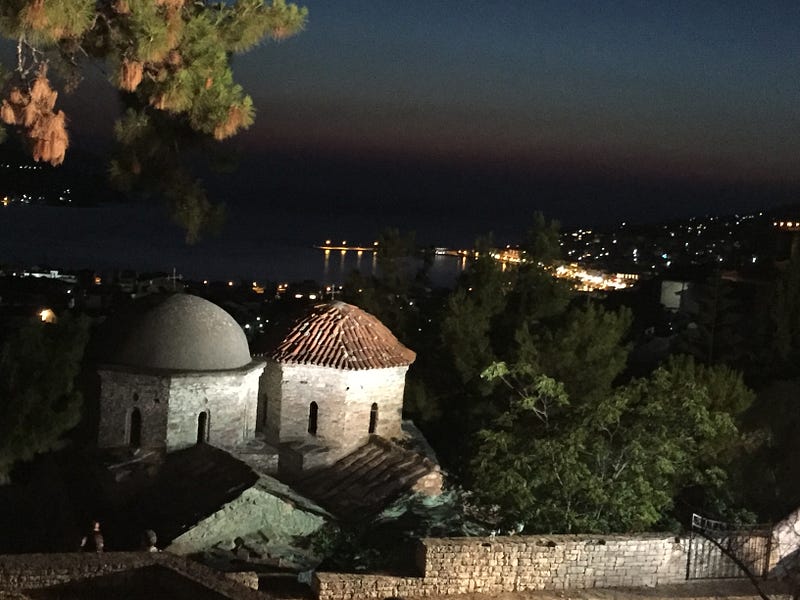
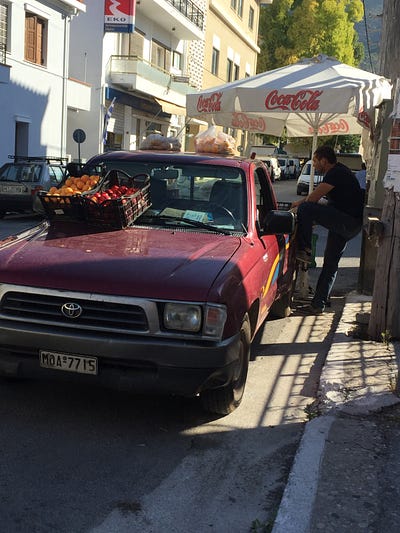
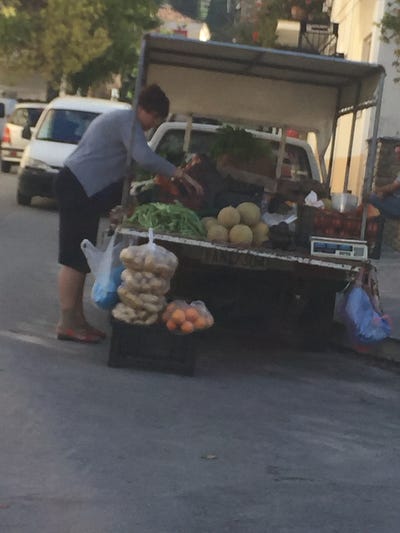
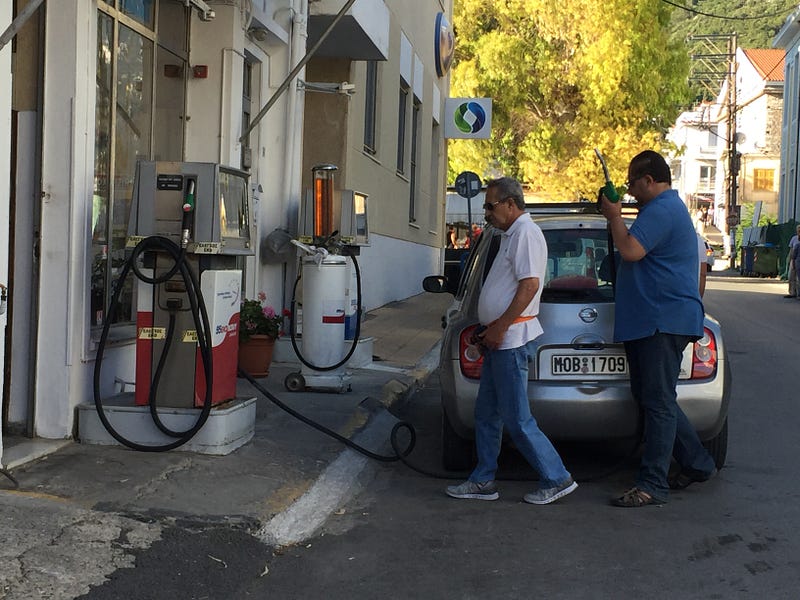
I’ll try to capture some of the people that have I have met. Abdulla (name changed) is a black Palestinian refugee from the West Bank and while some other fellow Palestinians have secured asylum, he has not. The local authorities have a hard time believing he is Palestinian even though he has all the paperwork to prove it. He told me about his job he left and his family. He has siblings as well and they are very worried about him and he is more worried about them. There is fighting every day on neighboring streets in his home. He also told me about the boat trip here on the dinghy with 40 other people even though the dinghy really holds 25. He said the hardest part was leaving his family and then hiding in the jungle for 2 days before he could board the dinghy. Sometimes hearing these stories, while I hear the words, I can barely comprehend the intensity or reality of it all.
At breakfast this morning I sat with a man who was working at Frontex (another partner of ours) which is the European and Coastguard Agency who supports search and rescue operations during border surveillance at sea. They are providing support at the camp during screening, debriefing, identification and fingerprinting. He was a former refugee from Iraq who lives in Northern Europe and now works as a translator with Frontex. They also work with the Kuestenwache which is docked at the shore where I walk daily. I was able to ask him many of the horrendous stories that I had heard and hear some positive ones as well. Was it really true that the Coast Guard sometimes circles the dinghies and tries to sink them? Was it really true that if the refugees jump into the water then the Coast Guard must save them but if they are in the dinghies they do not? That is often times what the smugglers tell the refugees. He confirmed that as an international agency they would never be allowed to nor want to sink the dinghies. I heard personal accounts which were different.
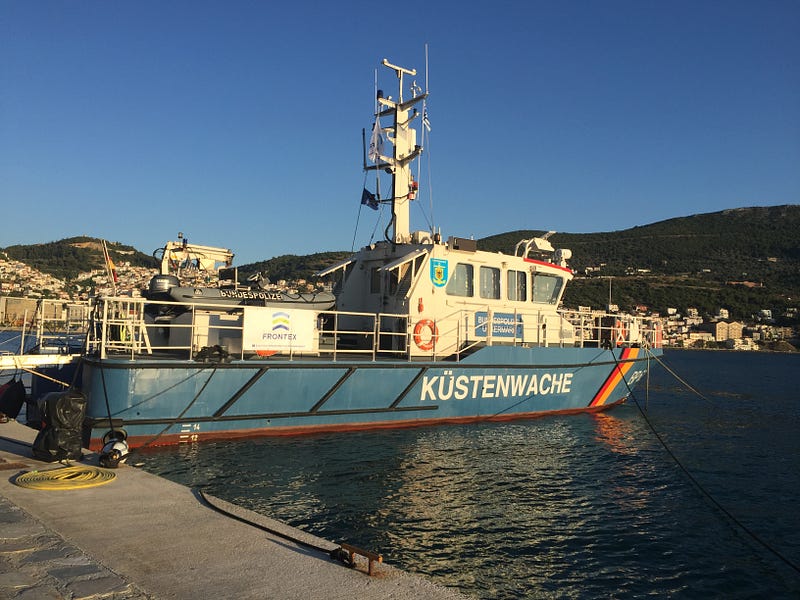
As I work at the reception desk at our education center, I hear countless stories which remain in my mind as I go through the motions of the day. One young Syrian man who traveled with his friend as they saw the Coast Guard boat jumped off their dinghy in fear and hid in the water for 7 hours and then he saw his friend drown… or the darling teenage boy who lives at Praksis (a UNHCR funded shelter for unaccompanied minors 15–18 years old) and would rather watch videos than learn English. Samos volunteers run classes in the shelter for these boys (English, music, and photography). Or what about my friend. who has left a mother, grandmother, and 2 sisters behind and talks to his mom daily with facetime. He dreams of seeing them all once again, somehow, somewhere. He misses his routine, their home, and her cooking. As I sit next to him in the park, he cries as he talks to his mom, his mom and grandmother sob and I try to hold back my tears once again. This time it is my turn to place my hand on his shoulder to give him some comfort.
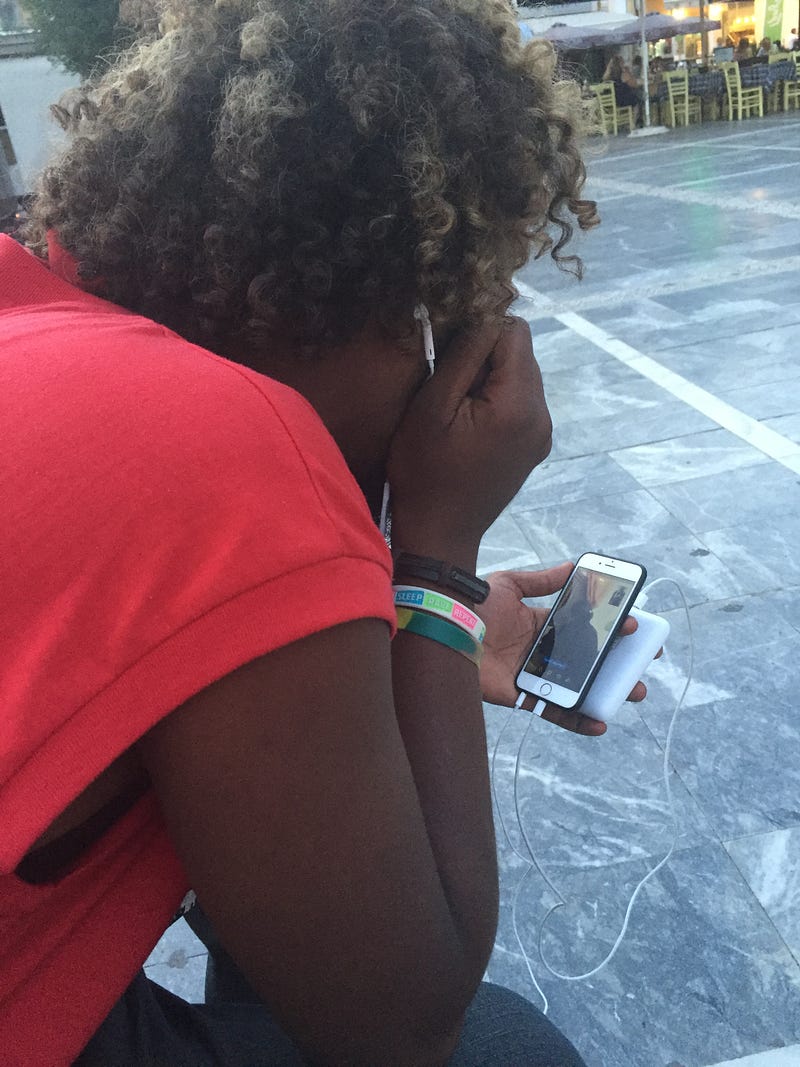
I unexpectedly needed a quick activity with kids and we had some construction paper and markers. As you can imagine- supplies are scarce and we do what we can with what we have. (see fun painted water bottles below) Today, some of them drew some amazing pictures — wish: I were an art therapist. Take a close look.
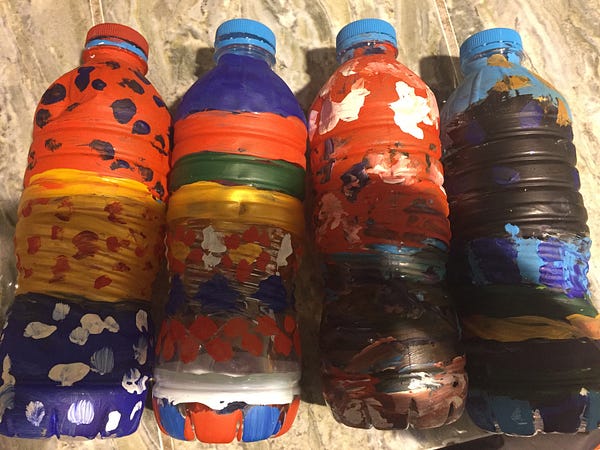
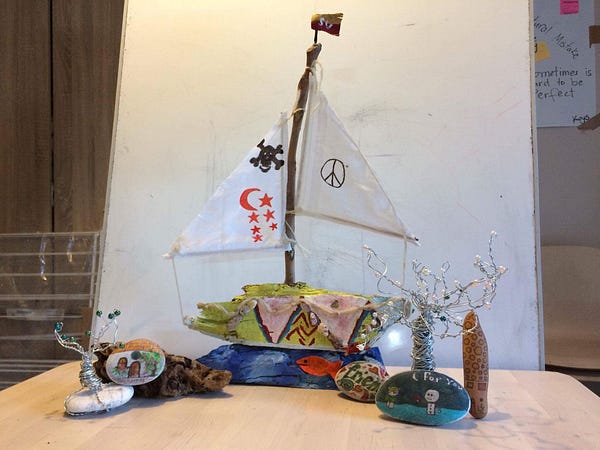
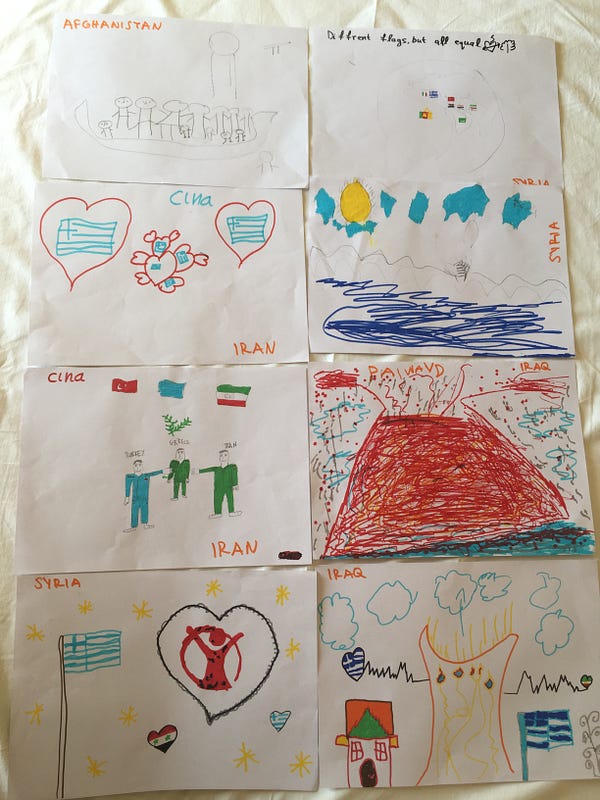
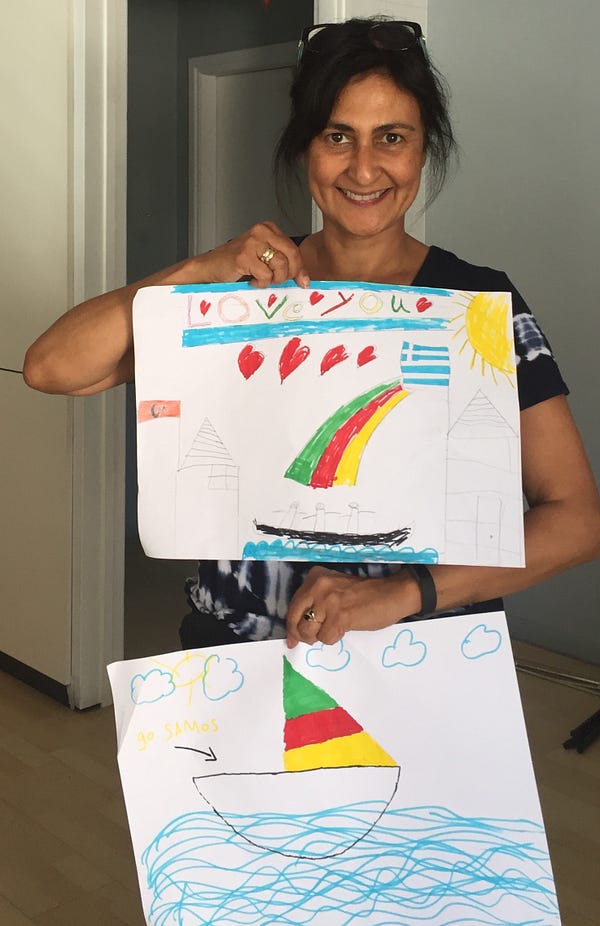
Others made greeting cards. They asked me who they should give their cards to (it was obviously a new concept for them) and I said anyone they would like. Someone in their family? One pauses on saying, mom or dad, as perhaps they only have one parent here or no parent at all. One girl excitedly said she wanted to make a card for her mom. She drew beautiful red hearts and flowers on it and wrote some sentences. She later said that her mom was not here — gulp… and then she looked sad (understandably so) and then she struggled in her broken English and a bit of a guessing game to finally tell me that she could not ever give this to her mom…… as her mom couldn’t read. Her best friend here, however, told me that her mom was a nurse and could help her learn to read as her mom helps lots of people. Refugees come from all walks of life.
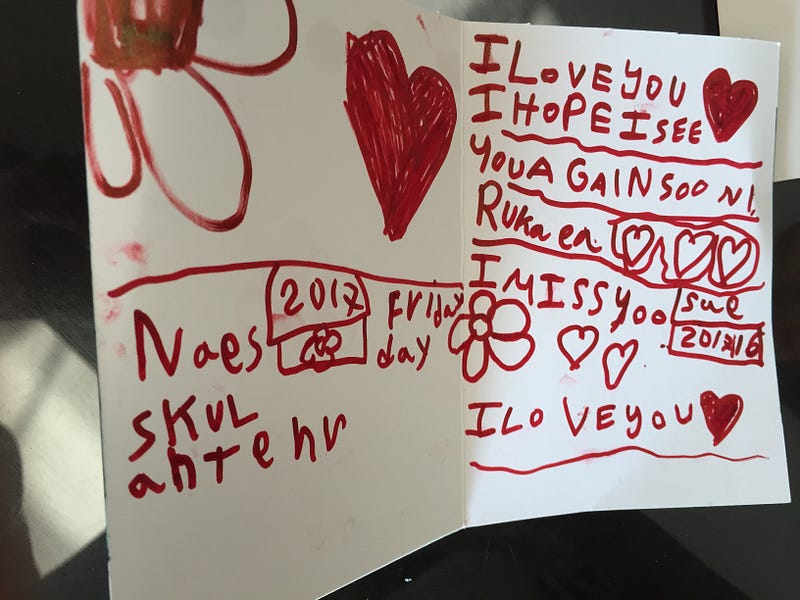
As I live in one of the refugee shelters (a modest hotel) I am getting to know many of the families. It is wonderful and there is one woman who always wears the brightest most joyful hijabs (head covering). Yesterday when I saw her she had a beautiful purple hijab and I stopped to say hello. She speaks very little English so our “conversations” are quite short and include lots of hand gestures and laughs. I complimented her on her hijab and within seconds she had taken it off her head and placed it on mine! There I stood looking at her beautiful hair which I had never seen. I was shocked that she had given it to me but then I quickly remembered that in some cultures if you compliment something they almost feel obliged to give it to you! and refusing it would be insulting but accepting it uncomfortable. So there I stood, wrapped in her hijab, offering to give it back, knowing full well that it would come home with me and most likely move me to tears every time I wore it remembering this gesture and her wonderful family.
I knew that I would be doing some arts and crafts with the women from the camp and so I brought some of my mom’s old beads and jewelry collected from her travels and life in North and West Africa that had fallen apart in hopes that some of the camp refugee women could put them back together in another part of the world. What a lovely full circle. My mom would be so pleased!
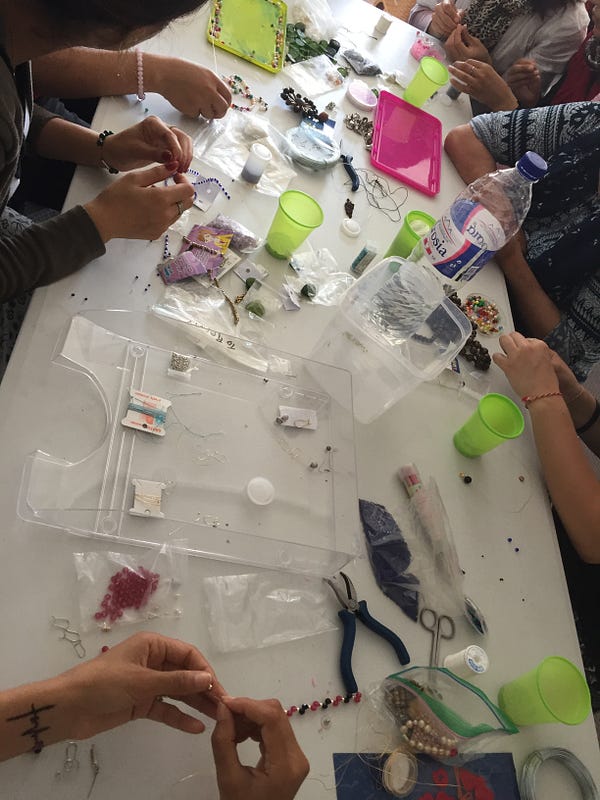
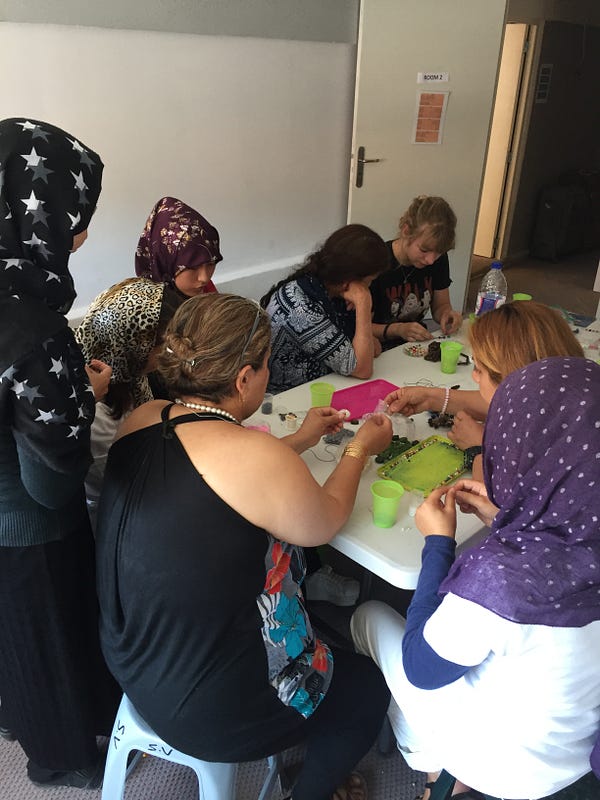
One day we did “spa day” with makeup, manicures, and yoga. They all had a good time and wanted more. All they want is normalcy and something to pass the incredibly long wait to see if they get asylum status or not.
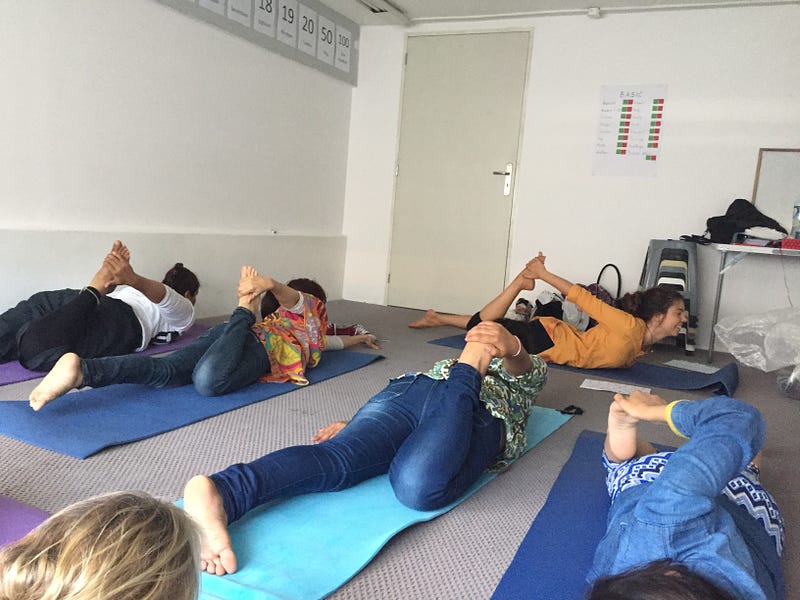

There are those who have gotten asylum status which means they go to Greece and then on to another EU country. Some get jobs immediately and others start the job search. You can barely imagine the immense relief and joy when they learn they have been granted a safe country to legally reside in. This gentleman below got all of his papers plus an amazing job in Athens! We join him in his joy!
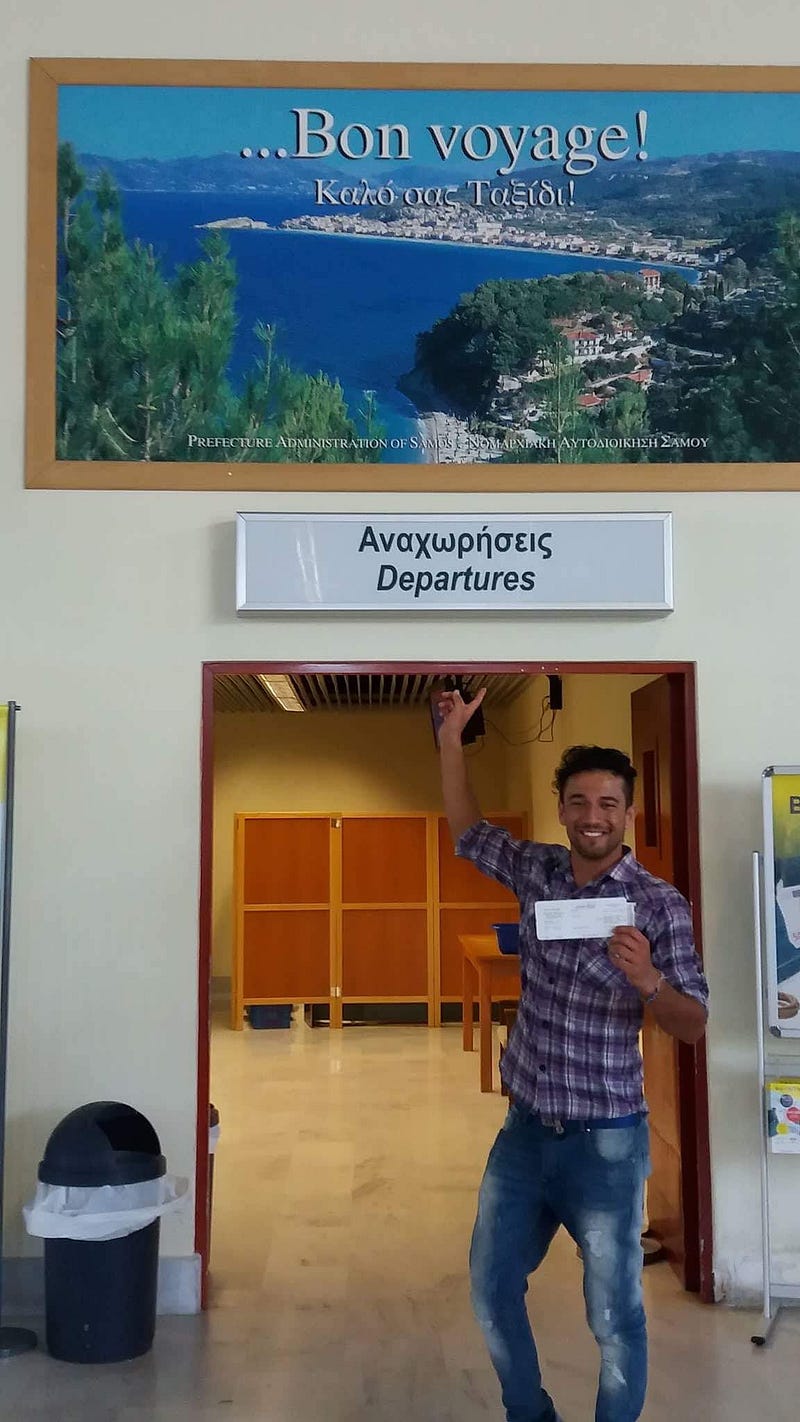
When I sit and reflect as to why I am here and what contribution am I REALLY making, it’s not something grand at all. It’s the conversations, the human interactions and being the listening ear. It’s being open to receiving a hug from a child or giving a nod and warm smile to some of the adults. It’s reassuring them they are safe for now and that others in the world do care and they are not alone. After all, isn’t that what we all want on some level. I know I do.
No comments yet.
Add your comment